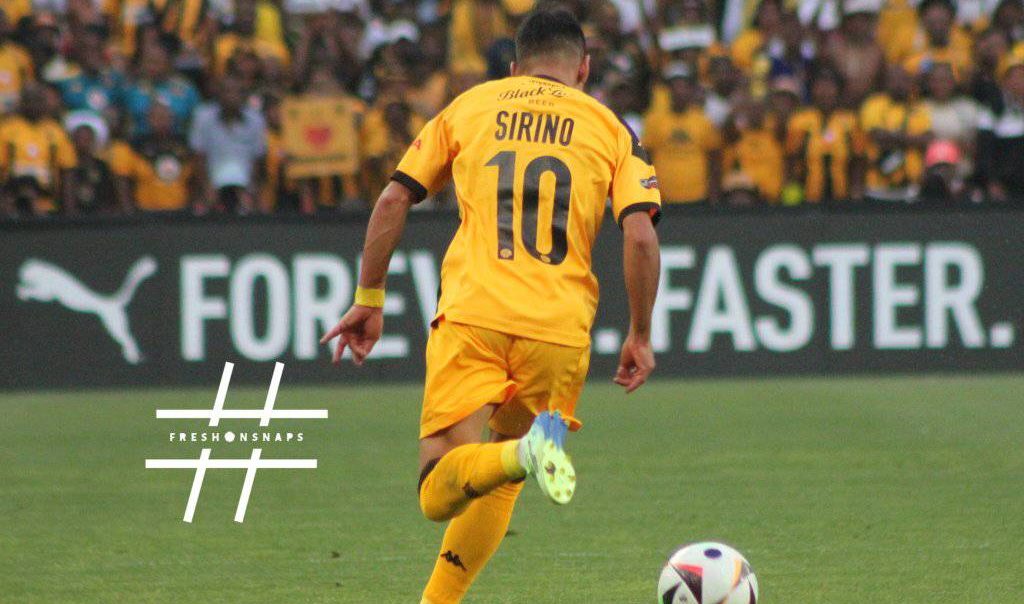Amidst concerns over Gaston Sirino’s conduct at Kaizer Chiefs, including repeated absences from training and alleged defiance of club protocols, sports lawyer Mpho Nkontlha has weighed in on the legal implications of such situations.
The Uruguayan midfielder, who joined Chiefs on a two-year deal in July, has frequently cited injuries as a reason for his non-participation, but Soccer Laduma quotes club sources as saying that his commitment to the team has been questionable.
Reports indicate that Sirino, at some point, refused to undergo medical assessments at the club’s designated facility, opting instead to seek treatment closer to his home. This defiance of club protocols has further brought the 33-year-old into the spotlight barely six months after joining them as a free agent.
Sirino was at the centre of another controversy during the recent Home of Legends Cup in Gqeberha. The player initially refused to travel with the team, citing injury concerns. However, after pressure from the club, he eventually joined the squad but did not play in any matches.
As first reported by Laduma, the former Mamelodi Sundowns attacker has reportedly told medical staff that he did not join Kaizer Chiefs to train and has shown a lack of commitment to the team’s goals.
In response to Sirino’s repeated breaches of club discipline, PSL giants Chiefs are said to have issued a stern warning to the player, indicating that further misconduct could result in contract termination.

Sports lawyer Nkontlha has discussed the legal implications of similar situations without referencing Kaizer Chiefs star Sirino.
UNDERSTANDING CAUSE AS DEFINED BY FIFA REGULATIONS
Nkontlha believes that to better comprehend the situation, it’s essential to delve into the concept of “just cause.” As defined by FIFA regulations, this term refers to exceptional circumstances that permit a club or player to terminate a contract without facing consequences.
A notable example is the FC Dinamo Minsk vs. Christian Udubuesi Obodo case, in which a player’s decision to undergo rehabilitation with a different doctor without the club’s consent was deemed a breach of contract.
A crucial aspect of player contracts is the provision of medical care. Nkontlha highlights the importance of club involvement in medical decisions. “Staying away from training sessions is a contractual breach. Disobeying the medical team’s instructions is also a breach,” he told FARPost.
He, however, stressed there is a principle of justice called Audi Alteram Partem, which basically means to hear the other side.
“Until we hear his side of the story, it would seem he is in the wrong, and the club would not be sanctioned for early termination,” he added.
The correct procedure, should a club consider terminating under such circumstances, is that the team doctor should either shortlist medical specialists or agree with the player on the appropriate medical practitioner for the injury or ailment. The club should assess the player’s condition and, if necessary, request a second opinion. However, the player must remain committed to rehabilitation and keep the club informed of their progress.
THE KEY LEGAL PRINCIPLES TO UNDERSTANDING THE GASTON SIRINO SAGA

1. Warning and opportunity: A club must warn a player about a breach of contract and provide them with an opportunity to rectify the situation.
2. Player’s right to health: If a player’s health is at risk, they may seek a second medical opinion, but they must still cooperate with the club’s medical team.
3. Injury and contract breach: Injury alone does not constitute a breach of contract unless the player fails to follow medical instructions or cooperate with the club. If a club terminates a contract with just cause [article 14 in conjunction with article 17 of the FIFA statutes] is clear “no sporting sanctions will be applicable to the club; sporting sanctions may be applicable to the player if the breach of contract was during the protected period; and compensation will be payable to the club.”
RELATED STORY: Nabi explains why Gaston Sirino didn’t feature for Chiefs

